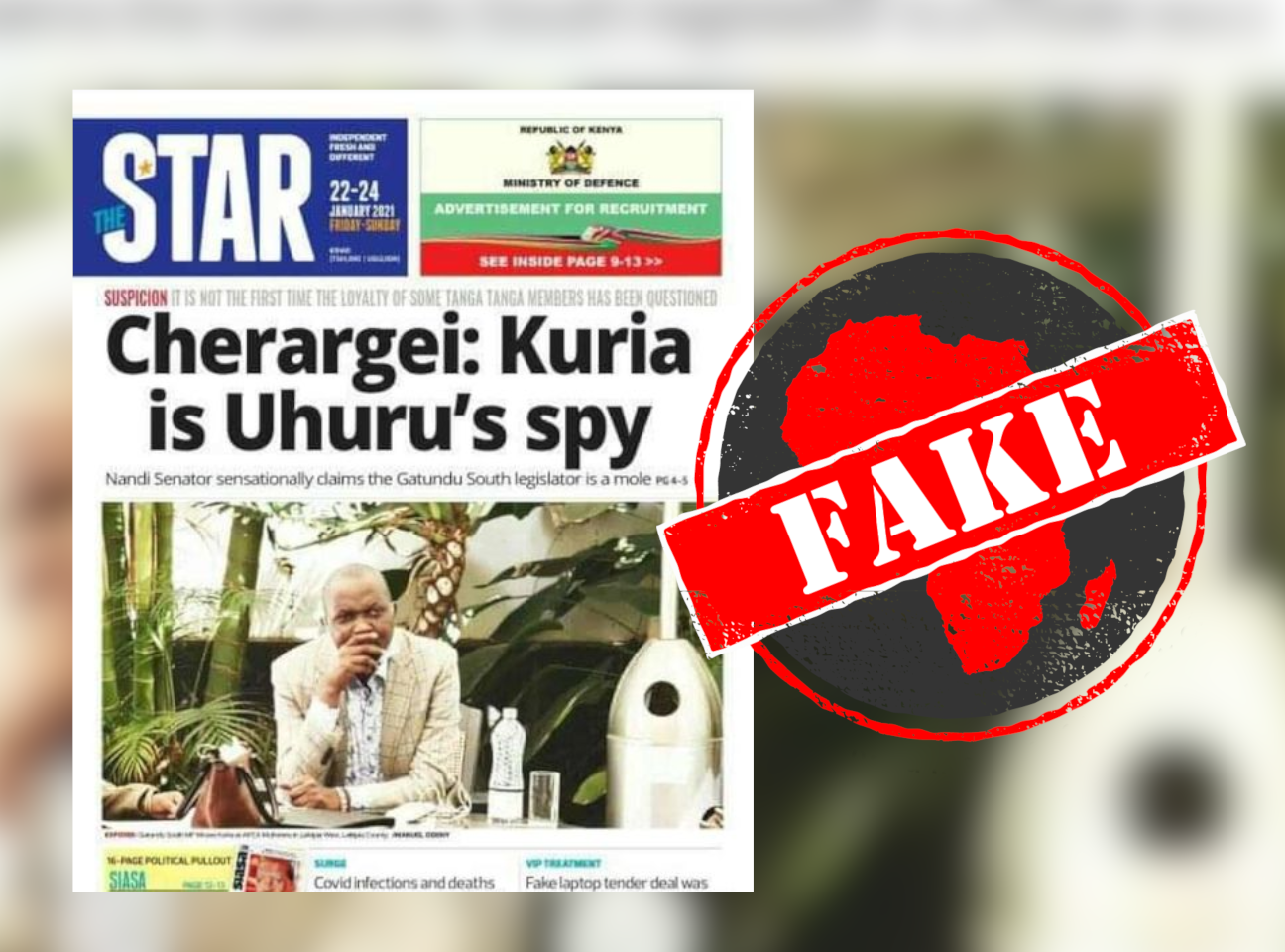The headline on what seems to be the 22 to 24 January 2021 edition of Kenya’s the Star newspaper, posted on Facebook, suggests that senator Samson Cherargei has accused fellow politician Moses Kuria of being a spy for president Uhuru Kenyatta.
“Cherargei: Kuria is Uhuru’s spy,” it reads. Text below adds: “Nandi Senator sensationally claims the Gatundu South legislator is a mole.”
The implication is Cherargei said Kuria, MP for Gatundu South and member of the ruling Jubilee Party, is pretending to be an ally of deputy president William Ruto while actually remaining close to Kenyatta. Ruto intends to run for the presidency in 2022, and Kuria recently defended Kenyatta from a personal attack by former Nairobi governor Mike Sonko.
The front page shows a photo of Kuria. Data from CrowdTangle, Facebook’s public insights tool, shows that it has attracted 3,109 interactions so far, in 69 Facebook posts.
We searched for the story on Google but could not find it on the Star’s website. Did the paper really publish this headline on the front page of its 22 to 24 January edition?

Dismissed by newspaper
On 22 January the Star posted the page on Twitter, stamped “FAKE”.
Real VS Fake https://t.co/8jrdbRL9UM pic.twitter.com/2F7ZBo9x0V
— TheStarKenya (@TheStarKenya) January 22, 2021
It shared the real front page alongside it. Here the headline reads: “BBI: Uhuru’s plan to win over Mt Kenya”.
The summary below adds: “Top state officials to explain projects being implemented by the government.”
And instead of a photo of Kuria, the real front page shows three pictures of a “heroic” boy with “shrivelled limbs” who “dreams of being an eye doctor”.
Republish our content for free
For publishers: what to do if your post is rated false
A fact-checker has rated your Facebook or Instagram post as “false”, “altered”, “partly false” or “missing context”. This could have serious consequences. What do you do?
Click on our guide for the steps you should follow.
Publishers guideAfrica Check teams up with Facebook
Africa Check is a partner in Meta's third-party fact-checking programme to help stop the spread of false information on social media.
The content we rate as “false” will be downgraded on Facebook and Instagram. This means fewer people will see it.
You can also help identify false information on Facebook. This guide explains how.


Add new comment